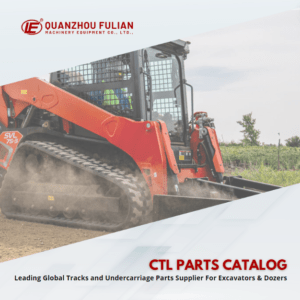

Choosing the most efficient and cost-effective motor type for your specific excavator model involves several key considerations that can significantly impact both performance and operating costs. This decision requires a balanced assessment of factors like compatibility, power requirements, operating environment, brand reputation, and total cost of ownership. Below is a comprehensive guide to help you make an informed choice.
1. Understand Your Excavator’s Requirements
Each excavator model has specific power and torque requirements, which should be matched with the motor’s specifications. Start by consulting your equipment’s manual or the manufacturer’s guidelines to determine the required motor size, type, and power output. Understanding these baseline requirements ensures that the motor you choose can handle the tasks your excavator is designed for, whether it’s heavy lifting, digging, or precise maneuvering.
2. Consider the Operating Environment
The environment in which your excavator operates plays a significant role in determining the most suitable motor type. For example, if your excavator works in a dusty or muddy environment, you’ll need a motor designed to withstand these conditions. Motors with sealed designs or those built with high-quality materials that resist corrosion and wear are ideal for harsh environments.
3. Assess Energy Efficiency
Energy efficiency is a critical factor, especially for businesses looking to reduce operating costs. Hydraulic motors, for instance, are known for their efficiency in converting hydraulic energy into mechanical power, making them a popular choice for excavators. However, electric motors are also becoming more efficient and may be suitable for certain applications, especially where precision control and reduced environmental impact are priorities.
4. Evaluate Brand and Manufacturer Reputation
The reliability of the motor is closely tied to the reputation of the manufacturer. Brands with a history of producing durable and efficient motors, such as Bosch Rexroth, Kawasaki, or Eaton, are often worth the investment. Researching user reviews and industry feedback can provide insights into the long-term performance and reliability of motors from various manufacturers.
5. Analyze Total Cost of Ownership
The initial purchase price of the motor is just one aspect of the cost. It’s essential to consider the total cost of ownership, which includes maintenance, energy consumption, and potential downtime. Motors that require less frequent maintenance or that are known for their durability might have a higher upfront cost but can save money in the long run.
6. Check Compatibility and Ease of Installation
Ensuring that the motor is compatible with your specific excavator model is crucial. Some motors are designed for easy integration with particular excavator brands or models, reducing installation time and potential complications. Compatibility also affects how well the motor will perform in tandem with other components, such as the hydraulic system or control electronics.
7. Consult with Experts or Suppliers
If you’re uncertain about the best motor for your excavator, consulting with experts or suppliers who specialize in heavy equipment can provide valuable insights. They can offer recommendations based on your specific needs, operating conditions, and budget. Additionally, suppliers might offer demonstrations or allow you to test the motor in a real-world setting before committing to a purchase.
Conclusion
Choosing the most efficient and cost-effective motor for your excavator requires a thorough understanding of your machine’s needs, the operating environment, and the long-term costs associated with different motor types. By considering these factors, you can make an informed decision that enhances your excavator’s performance while keeping operating costs under control.
Fulian Operation Team
2024.9.7








